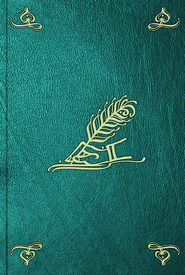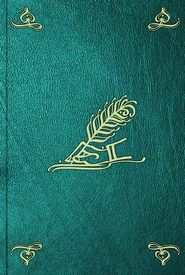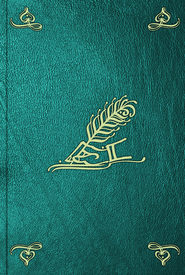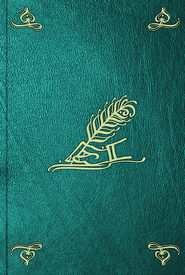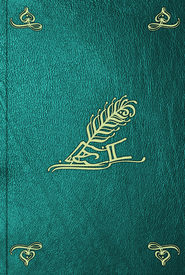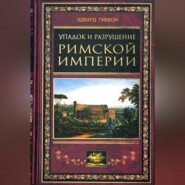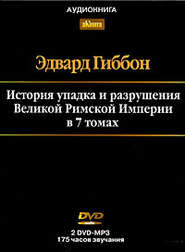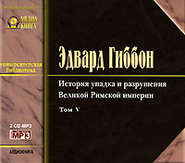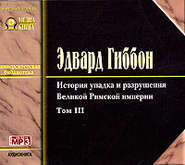По всем вопросам обращайтесь на: info@litportal.ru
(©) 2003-2025.
✖
Private Letters of Edward Gibbon (1753-1794) Volume 1 (of 2)
Настройки чтения
Размер шрифта
Высота строк
Поля
Footnote_442_442
Lord Macartney (1737-1806) was at that time Governor and Captain-General of the Caribbee Islands, and was at his post at Grenada in July, 1779, when that island was attacked, and, after a gallant defence, was captured by the French. Macartney was carried as prisoner of war to France, but was soon exchanged. Count d'Estaing's terms were that he should hold Macartney personally responsible for all the consequences of his refusal to surrender. Such of the inhabitants as were taken in arms would irrecoverably lose their estates and properties, and the free coloured people would be reduced to slavery.
Footnote_443_443
The ladies, returning from Spa, embarked at Ostend on the Fly sloop for Calais. On the voyage the sloop was attacked (September 17) by two French cutters. After a long engagement the French were beaten off.
Footnote_444_444
In 1779 a Mémoire Justificatif was put forth both at Paris and Madrid to explain the zeal of two despotic monarchies for the new-born republic of the United States. Gibbon was requested by the Lord Chancellor and Lord Weymouth, then Secretary of State, to vindicate, against the French manifesto, the justice of the British arms. His Mémoire, written in French, was approved by the Cabinet, and delivered as a State Paper to the courts of Europe. The Mémoire is published in English in the Annual Register for 1779 (pp. 397-412), preceded by translations of the Spanish and French manifestoes. Beaumarchais wrote a reply to the Mémoire, which he attributes to Lord Stormont (Observations sur le Mémoire Justificatif de la cour de Londres. Œuvres de Beaumarchais. Edition 1809, vol. v. pp. 1-50).
Footnote_445_445
Parliament met November 25, 1779.
Footnote_446_446
On December 1, Lord Shelburne in the Lords, and, on December 6, Lord Ossory in the Commons, moved a vote of censure on the Government for their conduct in Ireland. The Volunteer movement spread rapidly; a French invasion was dreaded; the cry for "free trade" rose higher and higher; a non-importation agreement was entered into; and the relief of Dissenters from the sacramental test was demanded. In consequence of this pressure, Lord North (December 13, 1779) proposed and carried a series of resolutions granting free export trade to Ireland.
Footnote_447_447
"The character of my friend (Mr. Holroyd)," says Gibbon in his autobiography, "had recommended him to a seat in Parliament for Coventry, the command of a regiment of light dragoons, and an Irish peerage." The seat for Coventry was vacant by the death of Walter Waring, M.P.
Footnote_448_448
Towards the end of 1779, and in January, 1780, Yorkshire, Middlesex, Hampshire, and many other counties petitioned the House of Commons to grant no more taxes till the expenses of Government were reduced and sinecure places abolished. The tone of several of these county meetings seemed almost to threaten Civil War. Devonshire is said to have voted a fund for buying arms. The Yorkshire petition was presented by Sir George Saville, February 8, 1780.
Footnote_449_449
In Lord Sheffield's edition of this letter (Gibbon's Miscellaneous Works, vol. ii. p. 239), the words are given as "I hear your Sussex protest gathers signatures in the country." The protest was suggested and promoted by Colonel Holroyd.
Footnote_450_450
Brooks's Club, originally in Pall Mall, was moved to 60, St. James's Street, in 1778. Gibbon, proposed by Mr. St. John, was elected in 1777. In Richard Tickell's verses celebrating the Hon. John Townshend's return for Cambridge in 1780, occur the following lines: —
"And, know, I've bought the best champagne from Brookes.
From liberal Brookes, whose speculative skill
Is hasty credit, and a distant bill;
Who, nursed in clubs, disdains a vulgar trade,
Exults to trust and blushes to be paid."
Footnote_451_451
On February 11, Burke brought forward his scheme for securing the independence of Parliament, and for Economical Reform, in a speech which Lord North said was "such as no other member could have made." Besides other reductions of expense, he proposed to abolish altogether the Board of Trade, the Civil Branch of the Ordnance, and the third Secretaryship of State. Lord North allowed the Establishment Bill to be brought in, the only member who opposed its introduction being Lord George Gordon. The House of Commons went into Committee on the Bill, March 8, 1780.
Footnote_452_452
On January 16, 1780, Rodney encountered the Spanish Admiral Langara off Cape St. Vincent, won a complete victory, relieved Gibraltar, supplied Minorca, and proceeded to the West Indies. The San Domingo (70 guns) blew up; the flagship Phœnix (80 guns), and three other ships of 70 guns, were taken. The San Julian (70 guns), after her prize crew was put on board, ran ashore. Another ship, after her officers were shifted, was totally wrecked. Four, more or less damaged, escaped into Cadiz.
Footnote_453_453
On March 13, 1780, the Board of Trade was declared to be useless by 207 to 199. Burke alluded to the literary value of the Board, which had its separate professor for every department of literature, and paid a sneering compliment to the "historian's labours, the wise and salutary results of deep, religious researches." As an Academy of Belles Lettres he held the commissioners hallowed; as a Board of Trade he wished them abolished.
Footnote_454_454
In the debate on the Army Estimates and the new Levies (April 5, 1780), Fox commented on the manner in which Colonel Holroyd had raised his Regiment of Horse. It is to Holroyd's reply, and his explanation that the regiment was raised by him for active service, and not as a "fencible corps," that Gibbon refers.
Footnote_455_455
On June 2, 1780, Lord George Gordon presented the petition of the Protestant Association against the relaxation of the Penal Laws against the Roman Catholics. The "No Popery" riots took place on the 6th and 7th, when London was for some hours in the hands of the mob.
Footnote_456_456
On Wednesday night, June 7, the riot was quelled by military force. The Northumberland Militia, which reached London on June 7 by a forced march of twenty-five miles, were led by Colonel Holroyd into the thick of the riot at High Holborn, to prevent the mob advancing westward, and to protect, if possible, Mr. Langdale's distillery. By Thursday morning the tumult was entirely suppressed. "To Colonel Holroyd, since deservedly raised to the British peerage as Lord Sheffield, the Country was eminently indebted for repelling the fury of the Mob at the Bank" (Wraxall's Historical Memoirs, 3rd edit., vol. i. p. 351).
Footnote_457_457
The session ended July 8, 1780.
Footnote_458_458
Lord Mansfield.
Footnote_459_459
Sir Henry Clinton had captured Charleston, May 12, 1780. Early in June, he re-embarked on Admiral Arbuthnot's fleet and returned to New York. Sir Henry was married to Miss Harriett Carter, a first cousin of Colonel Holroyd.
Footnote_460_460
Admiral (cr. 1794 Lord) Graves sailed, June, 1780, with six ships of the line, to reinforce Admiral Arbuthnot at Long Island, and joined him in July. The French fleet under d'Estaing was at the same time strengthened.
Footnote_461_461
Parliament was dissolved September 1, 1780.
Footnote_462_462
The Hon. Wilbraham Tollemache was elected in Gibbon's place for Liskeard.
Footnote_463_463
The newly elected Parliament met October 31, 1780. Gibbon was elected, at a by-election, M.P. for Lymington, June 25, 1781.
Footnote_464_464
Alexander Wedderburn succeeded Sir W. de Grey (afterwards Lord Walsingham) as Lord Chief Justice of the Common Pleas, with the title of Lord Loughborough (June, 1780).
Footnote_465_465
Lord Macartney (1737-1806) was at that time Governor and Captain-General of the Caribbee Islands, and was at his post at Grenada in July, 1779, when that island was attacked, and, after a gallant defence, was captured by the French. Macartney was carried as prisoner of war to France, but was soon exchanged. Count d'Estaing's terms were that he should hold Macartney personally responsible for all the consequences of his refusal to surrender. Such of the inhabitants as were taken in arms would irrecoverably lose their estates and properties, and the free coloured people would be reduced to slavery.
Footnote_443_443
The ladies, returning from Spa, embarked at Ostend on the Fly sloop for Calais. On the voyage the sloop was attacked (September 17) by two French cutters. After a long engagement the French were beaten off.
Footnote_444_444
In 1779 a Mémoire Justificatif was put forth both at Paris and Madrid to explain the zeal of two despotic monarchies for the new-born republic of the United States. Gibbon was requested by the Lord Chancellor and Lord Weymouth, then Secretary of State, to vindicate, against the French manifesto, the justice of the British arms. His Mémoire, written in French, was approved by the Cabinet, and delivered as a State Paper to the courts of Europe. The Mémoire is published in English in the Annual Register for 1779 (pp. 397-412), preceded by translations of the Spanish and French manifestoes. Beaumarchais wrote a reply to the Mémoire, which he attributes to Lord Stormont (Observations sur le Mémoire Justificatif de la cour de Londres. Œuvres de Beaumarchais. Edition 1809, vol. v. pp. 1-50).
Footnote_445_445
Parliament met November 25, 1779.
Footnote_446_446
On December 1, Lord Shelburne in the Lords, and, on December 6, Lord Ossory in the Commons, moved a vote of censure on the Government for their conduct in Ireland. The Volunteer movement spread rapidly; a French invasion was dreaded; the cry for "free trade" rose higher and higher; a non-importation agreement was entered into; and the relief of Dissenters from the sacramental test was demanded. In consequence of this pressure, Lord North (December 13, 1779) proposed and carried a series of resolutions granting free export trade to Ireland.
Footnote_447_447
"The character of my friend (Mr. Holroyd)," says Gibbon in his autobiography, "had recommended him to a seat in Parliament for Coventry, the command of a regiment of light dragoons, and an Irish peerage." The seat for Coventry was vacant by the death of Walter Waring, M.P.
Footnote_448_448
Towards the end of 1779, and in January, 1780, Yorkshire, Middlesex, Hampshire, and many other counties petitioned the House of Commons to grant no more taxes till the expenses of Government were reduced and sinecure places abolished. The tone of several of these county meetings seemed almost to threaten Civil War. Devonshire is said to have voted a fund for buying arms. The Yorkshire petition was presented by Sir George Saville, February 8, 1780.
Footnote_449_449
In Lord Sheffield's edition of this letter (Gibbon's Miscellaneous Works, vol. ii. p. 239), the words are given as "I hear your Sussex protest gathers signatures in the country." The protest was suggested and promoted by Colonel Holroyd.
Footnote_450_450
Brooks's Club, originally in Pall Mall, was moved to 60, St. James's Street, in 1778. Gibbon, proposed by Mr. St. John, was elected in 1777. In Richard Tickell's verses celebrating the Hon. John Townshend's return for Cambridge in 1780, occur the following lines: —
"And, know, I've bought the best champagne from Brookes.
From liberal Brookes, whose speculative skill
Is hasty credit, and a distant bill;
Who, nursed in clubs, disdains a vulgar trade,
Exults to trust and blushes to be paid."
Footnote_451_451
On February 11, Burke brought forward his scheme for securing the independence of Parliament, and for Economical Reform, in a speech which Lord North said was "such as no other member could have made." Besides other reductions of expense, he proposed to abolish altogether the Board of Trade, the Civil Branch of the Ordnance, and the third Secretaryship of State. Lord North allowed the Establishment Bill to be brought in, the only member who opposed its introduction being Lord George Gordon. The House of Commons went into Committee on the Bill, March 8, 1780.
Footnote_452_452
On January 16, 1780, Rodney encountered the Spanish Admiral Langara off Cape St. Vincent, won a complete victory, relieved Gibraltar, supplied Minorca, and proceeded to the West Indies. The San Domingo (70 guns) blew up; the flagship Phœnix (80 guns), and three other ships of 70 guns, were taken. The San Julian (70 guns), after her prize crew was put on board, ran ashore. Another ship, after her officers were shifted, was totally wrecked. Four, more or less damaged, escaped into Cadiz.
Footnote_453_453
On March 13, 1780, the Board of Trade was declared to be useless by 207 to 199. Burke alluded to the literary value of the Board, which had its separate professor for every department of literature, and paid a sneering compliment to the "historian's labours, the wise and salutary results of deep, religious researches." As an Academy of Belles Lettres he held the commissioners hallowed; as a Board of Trade he wished them abolished.
Footnote_454_454
In the debate on the Army Estimates and the new Levies (April 5, 1780), Fox commented on the manner in which Colonel Holroyd had raised his Regiment of Horse. It is to Holroyd's reply, and his explanation that the regiment was raised by him for active service, and not as a "fencible corps," that Gibbon refers.
Footnote_455_455
On June 2, 1780, Lord George Gordon presented the petition of the Protestant Association against the relaxation of the Penal Laws against the Roman Catholics. The "No Popery" riots took place on the 6th and 7th, when London was for some hours in the hands of the mob.
Footnote_456_456
On Wednesday night, June 7, the riot was quelled by military force. The Northumberland Militia, which reached London on June 7 by a forced march of twenty-five miles, were led by Colonel Holroyd into the thick of the riot at High Holborn, to prevent the mob advancing westward, and to protect, if possible, Mr. Langdale's distillery. By Thursday morning the tumult was entirely suppressed. "To Colonel Holroyd, since deservedly raised to the British peerage as Lord Sheffield, the Country was eminently indebted for repelling the fury of the Mob at the Bank" (Wraxall's Historical Memoirs, 3rd edit., vol. i. p. 351).
Footnote_457_457
The session ended July 8, 1780.
Footnote_458_458
Lord Mansfield.
Footnote_459_459
Sir Henry Clinton had captured Charleston, May 12, 1780. Early in June, he re-embarked on Admiral Arbuthnot's fleet and returned to New York. Sir Henry was married to Miss Harriett Carter, a first cousin of Colonel Holroyd.
Footnote_460_460
Admiral (cr. 1794 Lord) Graves sailed, June, 1780, with six ships of the line, to reinforce Admiral Arbuthnot at Long Island, and joined him in July. The French fleet under d'Estaing was at the same time strengthened.
Footnote_461_461
Parliament was dissolved September 1, 1780.
Footnote_462_462
The Hon. Wilbraham Tollemache was elected in Gibbon's place for Liskeard.
Footnote_463_463
The newly elected Parliament met October 31, 1780. Gibbon was elected, at a by-election, M.P. for Lymington, June 25, 1781.
Footnote_464_464
Alexander Wedderburn succeeded Sir W. de Grey (afterwards Lord Walsingham) as Lord Chief Justice of the Common Pleas, with the title of Lord Loughborough (June, 1780).
Footnote_465_465







